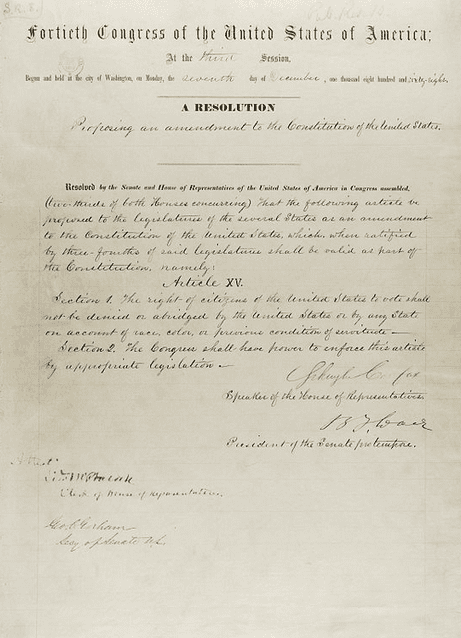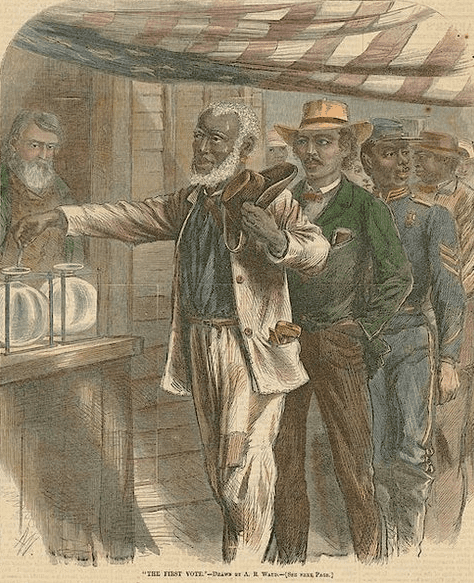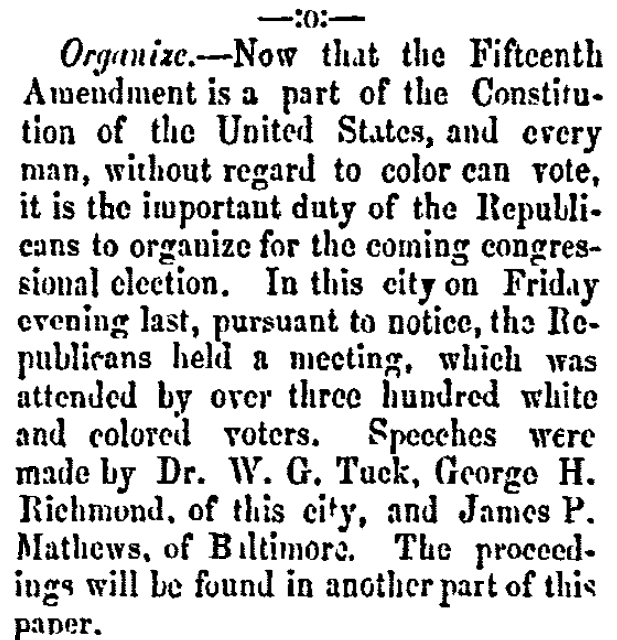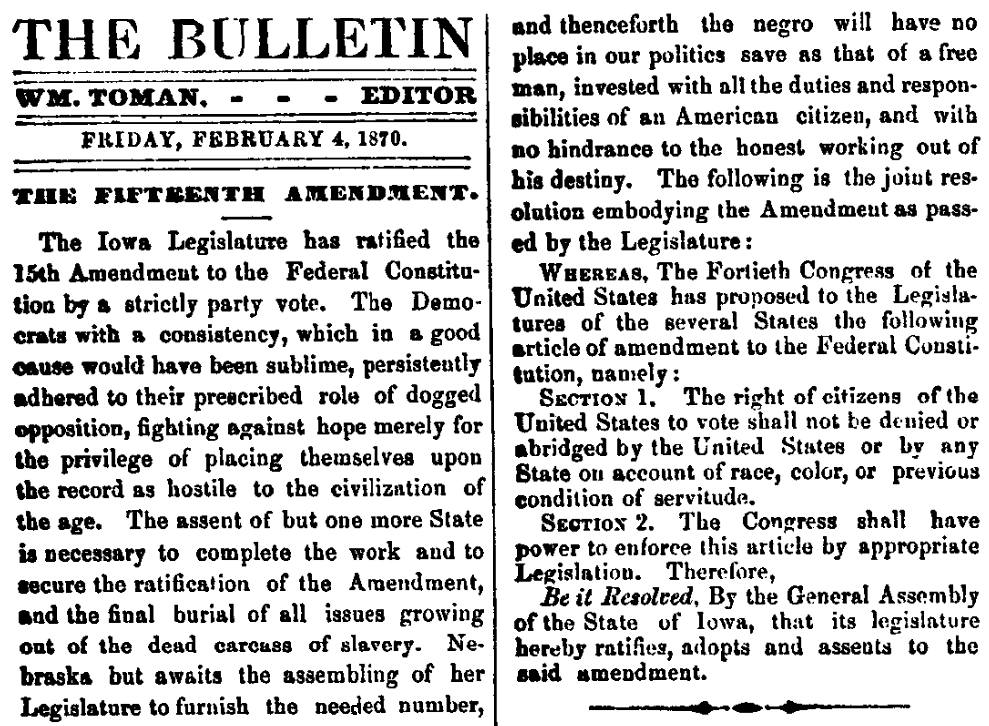February is Black History Month in the United States, and on this day an important event happened in U.S. and African American history. On 3 February 1870, almost five years after the Civil War ended, the Fifteenth Amendment to the U.S. Constitution was ratified, guaranteeing voting rights to male citizens regardless of race, color, or status as former slaves.

The wording of the Amendment is simple, consisting of two sections:
Section 1. The right of citizens of the United States to vote shall not be denied or abridged by the United States or by any State on account of race, color, or previous condition of servitude.
Section 2. The Congress shall have power to enforce this article by appropriate legislation.

While the 15th Amendment is unquestionably an important milestone, it’s important to remember that the amendment’s reference to “citizens of the United States” meant only males. Women – of all colors – would not be recognized with the right to vote until passage of the 19th Amendment in 1920, an astonishing 50 years later.
For the Republican Party – the party of Lincoln the great emancipator of the slaves – the Fifteenth Amendment was a political boon, as this article printed by the Annapolis Gazette pointed out in its issue of 3 February 1870 – the day the Amendment was ratified.

Here is a transcription of this article:
Organize.
Now that the Fifteenth Amendment is a part of the Constitution of the United States, and every man without regard to color can vote, it is the important duty of the Republicans to organize for the coming congressional election. In this city on Friday evening last, pursuant to notice, the Republicans held a meeting, which was attended by over three hundred white and colored voters. Speeches were made by Dr. W. G. Tuck, George H. Richmond, of this city, and James P. Mathews, of Baltimore. The proceedings will be found in another part of this paper.
In this next article, the Buchanan County Bulletin hails the ratification of the 15th Amendment by the Iowa Legislature, declaring:
“The assent of but one more State is necessary to complete the work and to secure the ratification of the Amendment, and the final burial of all issues growing out of the dead carcass of slavery.”

Here is a transcription of this article:
The Fifteenth Amendment
The Iowa Legislature has ratified the 15th Amendment to the Federal Constitution by a strictly party vote. The Democrats with a consistency, which in a good cause would have been sublime, persistently adhered to their prescribed role of dogged opposition, fighting against hope merely for the privilege of placing themselves upon the record as hostile to the civilization of the age. The assent of but one more State is necessary to complete the work and to secure the ratification of the Amendment, and the final burial of all issues growing out of the dead carcass of slavery. Nebraska but awaits the assembling of her Legislature to furnish the needed number, and thenceforth the negro will have no place in our politics save as that of a free man, invested with all the duties and responsibilities of an American citizen, and with no hindrance to the honest working out of his destiny. The following is the joint resolution embodying the Amendment as passed by the Legislature:
WHEREAS, the Fortieth Congress of the United States has proposed to the Legislatures of the several States the following article of amendment to the Federal Constitution, namely:
SECTION 1. The right of citizens of the United States to vote shall not be denied or abridged by the United States or by any State on account of race, color, or previous condition of servitude.
SECTION 2. The Congress shall have power to enforce this article by appropriate legislation. Therefore,
Be it Resolved, By the General Assembly of the State of Iowa, that its legislature hereby ratifies, adopts and assents to the said amendment.
Note: An online collection of newspapers, such as GenealogyBank’s Historical Newspaper Archives, is not only a great way to learn about the lives of your ancestors – the old newspaper articles also help you understand American history and the times your ancestors lived in, and the news they talked about and read in their local papers.
Related Articles:
